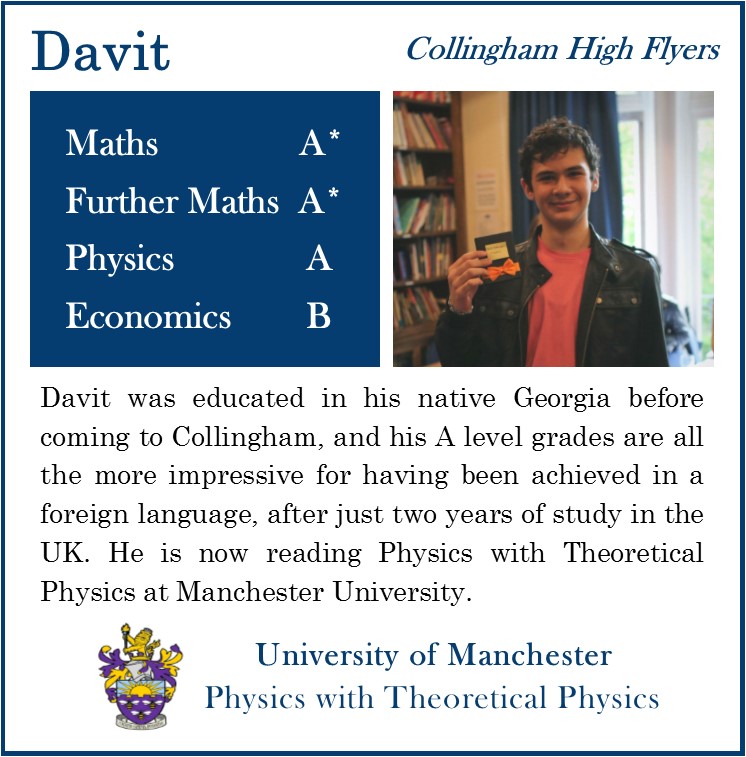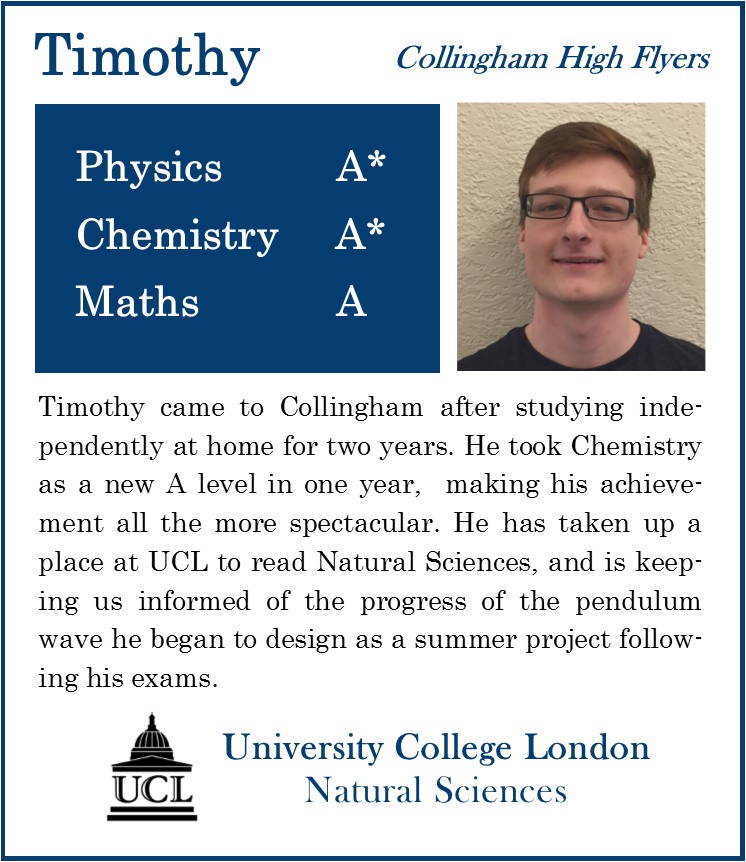The Subject
Physics is an intellectually rewarding subject, which will appeal to anyone interested in the physical world and the principles behind the remarkable technological developments of our era.
“God does not play dice” Albert Einstein
Physics is nothing less than an attempt to discover and explain the fundamental workings of the entire physical Universe – from the unimaginably small scale of "quantum strings", through to the world we know and live in, and out to the amazing enormity of distant galaxies and the strangeness of black holes.
This may sound dauntingly abstract, but every time you turn on a light bulb, catch a plane, use a computer, have an x-ray, surf the net, cross a bridge, wear glasses or open the fridge, you are benefiting from the practical results of the work of physicists. Our understanding of Physics has transformed the world we live in, and the technological development it drives can only accelerate in the coming years.
.jpg)


The course
Students will study sections 1 to 5 of the AQA Physics A level (specification 7408) in their first year, and then continue to study sections 6 onwards in their second year.
Year 1 content
- Measurements and Errors
- Particles and Radiation
- Waves
- Mechanics and Materials
- Electricity
Year 2 content
1 Measurements and Errors
2 Particles and Radiation
3 Waves
4 Mechanics and Materials
5 Electricity
6 Further Mechanics and Thermal Physics
7 Fields and their Consequences
8 Nuclear Physics
& one option of either:
9 Astrophysics or
10 Medical Physics or
11 Engineering Physics or
12 Turning Points in Physics or
13 Electronics.
In the Summer of their first year they will take internal college exams, on sections 1 to 5.
In the Summer of their second year they will take the three A level exams, on all sections, and be awarded an A level grade. The exams are a mixture of multiple-choice and short-answer questions
Practical work
There aree 12 specific experiments, with 6 to be completed in each of the two years. The paper 3 exam will ask questions about one of them. In addition, the teacher will assess how the students have conducted and documented the experiments, and if these are to a satisfactory standard, an additional “pass” grade will be awarded.
Clearly, studying the subject at A level opens the door to an immense and interesting range of work and university options. Computer Science, Medical Physics, all Engineering possibilities, Acoustics and Recording, Telecommunications, Archaeology and Astronomy are some of the more straightforward paths – but skills in both logical and inventive thinking that a student will learn from the course make Physics a valuable qualification for many more options – such as Economics, Law, Philosophy and Business.
Physics makes a good companion to all other science subjects and a stimulating complement to Arts, Business and Language courses. The course is open to anyone with GCSE Maths and Physics. We recommend that students also study Maths to at A level, although this is not absolutely necessary.
Preferred Board: AQA